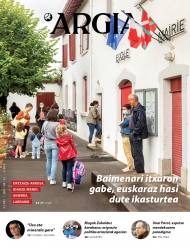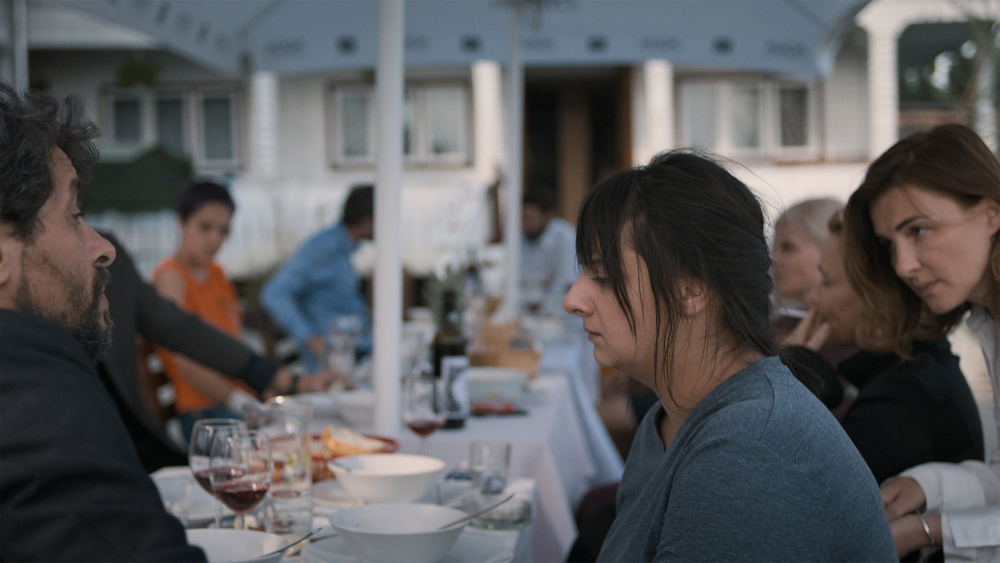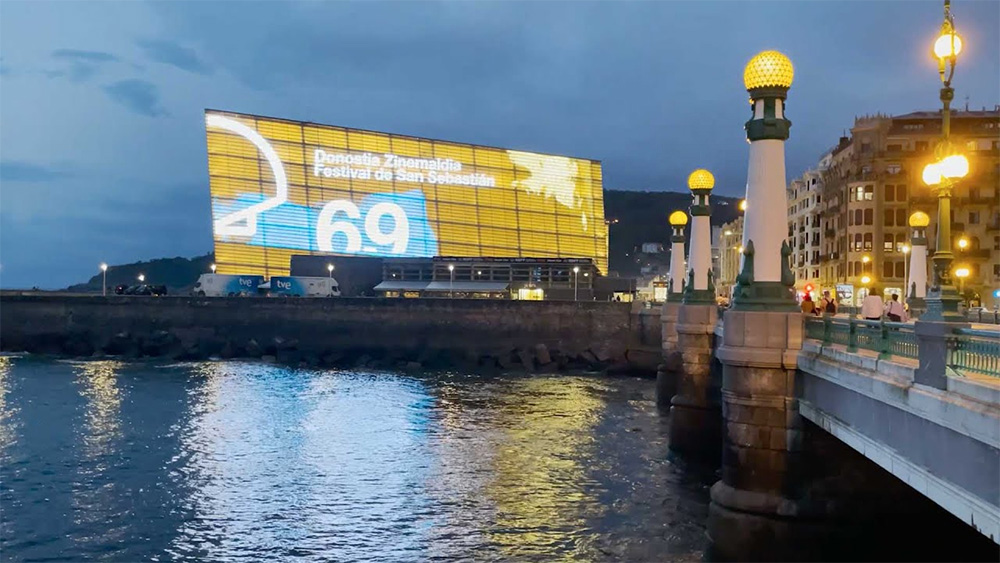Complaints, attempts to break the dichotomy and film recommendations
- The San Sebastian Film Festival approaches 69 times. Once again the city is disguised as a red carpet, appears with as much gloss as possible and uniform totes are circulating on all sides. Let's see the color of this year.

The two news stories came at almost the same time. On the one hand, the transformation of the Silver Shells, prizes to the best actresses and actresses that are given each year. From now on, two prizes will be awarded: the award for the best interpretation without sexual discrimination and the award for the best actor of the team. The Film Festival also wanted to enter the path opened by Berlinal and, despite recognizing that “they are not certain”, they wanted to take steps to “help build a more egalitarian society”.
But, on the other hand, they have also taken a decision that has generated many controversies: It is ratified in the award of the San Sebastian Prize to actor Johnny Depp. Following the suspension of several contracts that Hollywood maintained on the occasion of the complaint about gender violence, Zinemaldia has been condemned since the feminist movement for having decided to move forward with the prize. The confrontation between the political parties has also led to the event, and it remains to be seen what steps will be taken in the future. The actress denounces that Hollywood is suffering a “boycott” as Europe awards it. There are, above all, associations and distinctions between art and politics. And their core business.
With the mixed casings, the Zinemaldia has given us almost all the information about its programming. Maixabel competes in the Official Section, based on the experiences of Maixabel Lasa of Iciar Bollaín. In 2000, an ETA group murdered her husband, Juan Mari Jauregi, the civilian governor of Gipuzkoa. The film depicts how, after eleven years of shooting, the former ETA member is going to ask for a face-to-face conversation with the woman.
Continuing with the films produced in Euskal Herria, the Zabaltegi-Tabakalera section will host the Heltzear short film by Mikel Gurea. After your participation in the Orizzonti section of the Venice Film Festival, you will be able to see it in this section of the Zinemaldia and in the Kimuak catalog. The film tells a story about overcoming one's own borders in a context of political violence. It is located in San Sebastian, in the year 2000, when the Basque conflict was still boiling. The protagonists are Haizea Oses, Mikel Arruti and Oier de Santiago. Sara (Haizea Oses) is a 15-year-old escalator who prepares for the toughest ascension of her life while writing a letter to her not close brother.

As far as the Kimuak catalog is concerned, this year’s edition consists of eight short films, which will be a pass for the annual press inside the Zinemaldia. Azaletik azala, Aitor Gametxoren Berak baleki, Inner outer space by Laida Lertxundi, Resonances (Echoes) by Iñigo Aranburu, Trumons by Iker Maguregi, Ur azpian by Aitor Oñederra, Zeru Helluol-Bluair.
The film of the Elijah Querejeta Film School in San Sebastian will also be shown in the Nest section for film students. This is the short film Podul de Piatrâ / Pont de Pedra, directed by Artur-Pol Camprubí, shot in the area of Aragon. In the film, a lantern that marks the border of a people from the List of Aragon is turned on at night. Angelica is a Romanian woman who lives in the village and, while working, discovers that a foal is being born on the block. The struggle of the little animal to get rid of the mother tongue, the image of being a ghost and being a border, crosses the woman, where she will not get rid of it. The work of continuing with care.
In addition, the Zinemira section would be a showcase for Basque films.
By the way, I take advantage of the article to write beyond our productions, films that have to be seen in other departments. The Nest section welcomes the film Ob scena de la argentina Paloma Orlandini, a reflection on the inclusion of social control in sexual representation. Orlandini retrieves the academic texts on sexuality written by a psychiatrist in Cuba in the 1980s and relates to current pornography. The brave work won the prize of the Argentine film festival BAŃAS and brings us the air of the liberation struggles.
At Horizontes Latinos, Tatiana Huezo's Fire Night is the one that has attracted us the most. In it we will find a bitter story mixed with magic and realism, which, on the contrary, tells us a lot about our environment. In a solitary village, located in the Mexican mountains, girls cut their hair like boys and have underground hides. Ana and her two best friends occupy the houses of people who have escaped the village and disguise themselves as women when no one sees them. They live in a universe of magic and intravascular joy, as their mothers prepare them to flee from those who turn them into slaves or ghosts. But one day, one of the girls doesn't come in time to hide. We were anxious to see a film that lasts almost two hours.

The New Directors section is chosen for first- or second-feature directors. In this case we have focused on Russia, the film Lena Lanskihen Nich’ya / Unwanted. Here's the movie synopsis: Vika is 14 years old and lives in a small town in the Russian region of the Urals, outside the capital. In the forest it collects the fruits that grow in the wetlands and helps the mother sell these fruits in a street market. She likes school choreography classes. And she has a baby, but no one should ever know about it. The lack of maternal centrality and the non-romantic relationship has generated great curiosity.
The work of Jean-Gabriel Périot, already known to the Zabaltegi-Tabakalera section, will compete this year in this section. In Retour à Reims / Retourning to Reims (back to Reims), Périote makes a free adaptation of the homonymous novel by Didier Erbion. Through the archival material, the director tells us an intimate and political story of the French working class, which extends from the early 1950s to the present day.
Finally, in the Pearls section, Les intranquilles (The Discomfort) we look closely. It portrays the sentimental relationship between Leïla and Damien, resulting in the presence of bipolar disorder within the relationship. It is a reflection on the expectations and offers of partner relationships.
We wanted to make progress on what comes with this review through the different departments, such as proposing ways that go beyond the Official Department. Anyone who wants to accommodate both Basque films and films that are not seen in commercial theatres has a role from 17 to 25 September. Maybe we get together in it. Goodbye!

























